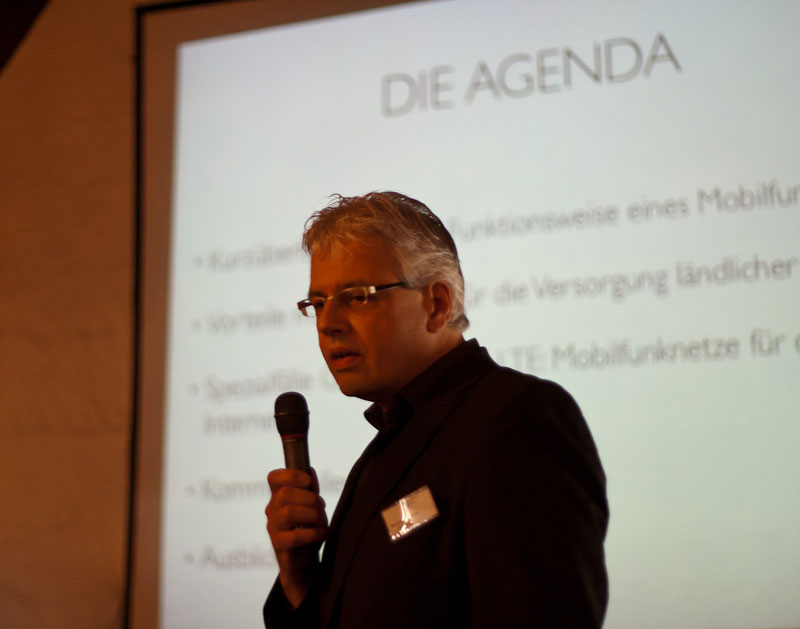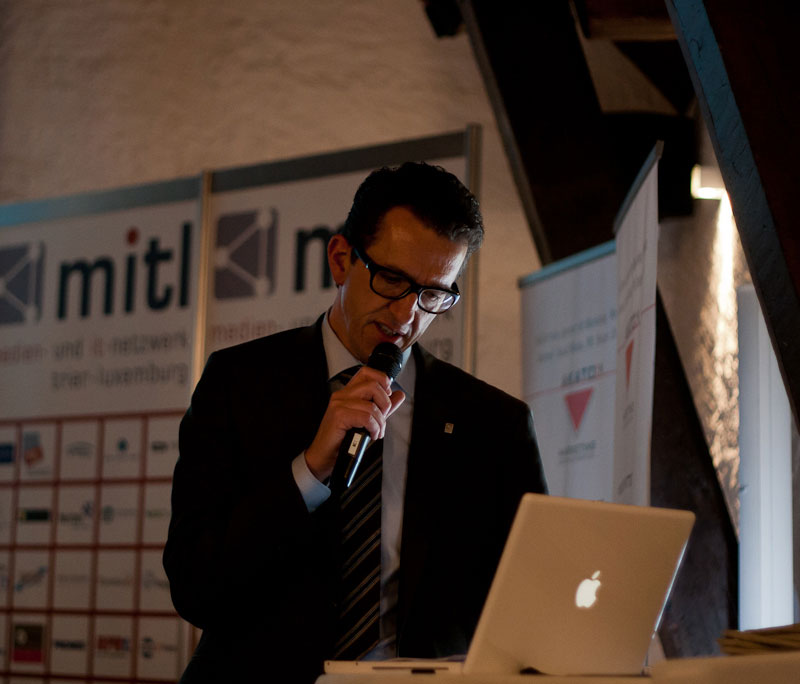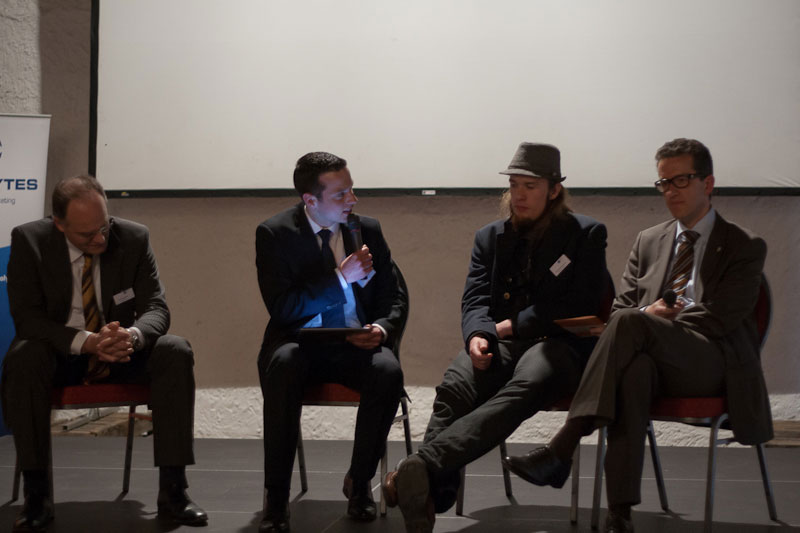Media-Day 2012 Rhineland-Palatinate, the heart of the Internet?
Now, a couple of days after the first part of my review of the event Media Day, which focused on the professional topics like responsive web design and apps, it is time for part 2. This post covers the technological and political foundations regarding broad band in Rhineland-Palatinate, and why this is often still lacking.
Hendrik Hoehndorf: cells are also breathing

In his presentation, Hendrik Hoehndorf talk about the technological details of the mobile net. Scandinavian countries started in the 70s and 80s with the development of cellular phone networks as a technology to cover rural regions. Due to the bad throughput in GSM networks, they started investing in IP based networks like UMTS or LTE. A huge problem is the breathing of cells, meaning that the size of a cell depends on the data transmission. This means in practice that the cell contracts on the edges when a lot of people use the mobile net in a cell, meaning that parts of the cell are not covered any more.
Heike Raab: Supply with broad band in the coalition agreement
State secretary Heike Raab opened the Media Day as the patron, although from a content side, her presentation fits better to the one of Joachim Streit. I therefore changed the order a bit.
She covered the programme “Faster Internet for Rhineland-Palatinate” of the red-green government, defining the supply with broad band as a “voluntary service for the public”. However, there are tight limits for a country, meaning that only EU certified promotions are possible. According to the coalition agreement, all communities will provide a basic service of tiny 2 MBit/s. Afterwards, the initiative will concentrate on faster broad band.
Concluding her presentation, Heike Raab talked about various past initiatives which are included in her presentation slides. She also included two interesting links: the “Breitbandatlas”, showing the broad band supply on a map, and the broad band project office with current information on the broad band development.
Joachim Streit: Internet, a scarce commodity in Bitburg-Prüm
Joachim Streit started with a bold statement: “broad band internet is part of the basic services”. According to this view, a region without broad band connection is on a constant downward spiral: First, younger people move to different regions, than companies follow. This leads to reduced economic power of a region and an ageing population. Finally, real estate prices go down because the apartments cannot be let any more.

The district of Bitburg-Prüm is in a particularly bad position. Part of a solution is a system of empty pipes, meant to be filled with cables later. 90 communes can be connected in this way. About 80 others can only be made accessible via the economic gap (text in German). The district focusses on a small solution because providing the infrastructure is too expensive and cannot be payed by the district. In doing so, seven central locations of companies should be connected to the broad band.
A panel discussion without real discussion
Concluding the second Media Day, three people discussed the broad band supply in the region: the business man Thomas Simon as well as the politicians Joachim Streit and Christian Hautmann (Pirate Party), moderated by Benjamin Judith.
Joachim Streit said that the privatization of the market es especially difficult for the rural regions, because nobody wants to invest in these regions. The money from selling the UMTS licenses also has not been used for the development of infrastructure, but to fill budget gaps. The industrial park Weinsheim, close to Prüm, particularly complains about bad connections. Streit also asked how the internet could make the lives of elderly people easier, quoting smart living as an example. This could help people do their daily errands.
Profits were privatized, loads were socialized.
Christian Hautmann started with a “right of access”, grounded in the freedom of information. However, as Joachim Streit said, the question of whether the internet belongs to the services for the public is central. The country, for example, defines the internet as a “voluntary service for the public”, avoiding difficult discussions about funding and responsibility.

Hautmann explained that from a political point of view, the internet is a possibility to stay organized in a grass-root democracy. For example, the decentralized political convention of his party tried to create social justice, meaning that participating should not be hindered by expensive travel. This did not take place without problems of connections. However, a lot of bandwidth is wasted because developers are not careful with resources. Mobile First is the keyword here.
There is a right of access to the internet.
Thomas Simon took a business viewpoint and stressed the importance of the internet as a locational factor. He showed interest in a suggestion of Christian Hautmann: A possibility to fund the development of infrastructure could be a PledgeBank. This would mean that the participants agree on donating a certain amount of money in case that enough other people do the same. Simon said this might even be a business model.
The service society is based on providing value, which companies can only create using the internet.
License: The presentations are excluded from the CC license of the post.